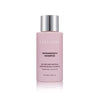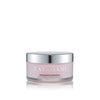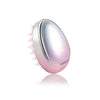
5 Ways Hormones Can Affect Your Hair: A Detailed Guide!
Your stylist may have noticed changes in your hair if you recently had it dyed or cut short. The front of your hair may get a little drier or thinner, or your hairline may fade. You might be surprised to learn that your hair can be affected by hormonal changes.
We are aware that hormones have an impact on several physiological processes, such as emotions, metabolism, and fertility. But the hair may also experience hormonal changes. A disturbance in the hormone balance may result in changes to your hair. This article will describe how the causes, effects, and treatments of hormonal hair loss are different from those of other types of loss. Find out everything you want to learn about how hormones influence hair growth.
Which Hormones Have an Impact on The Condition of Your Hair?
There are five different hormones that can have an impact on your hair. Here, we will examine each in more detail.
1. Androgens:
Certain hormones collectively referred to as the male hormones, are largely prevalent in males but less so in females. Dihydrotestosterone (DHT), which may be present in high concentrations or at higher thresholds, is associated with dispersed hairline receding in women and a trend of thinning in men. These elevated concentrations of Dihydrotestosterone (DHT) cause significant facial hair growth as well as loss of hair in both males and females.
2. Estrogen and progesterone:
Women have large amounts of these feminine hormones, whereas men have lower amounts. Pregnancy-related increases in estrogen and progesterone levels encourage women to have healthier, longer hair while regulating and lowering DHT synthesis. Women typically experience problems with hair thinning around menopause when all these hormone levels begin to decline.
3. Thyroid:
The thyroid hormone is yet another hormone that has an impact on hair. Hair loss, hair breakage, fragile hair, dry scalp, and other problems can occur in people with an abnormal or hyperactive thyroid.
4. Stress hormones:
Your follicles' inability to develop the new hair they are trying to produce is one of the many ways stresses have an influence on your well-being. Additionally, stress may cause your existing hair to stop growing earlier than usual. These two elements taken together could cause rapid hair thinning. Reducing your stress is as simple as saying it but doing so is just the opposite of what should be done. Also, feel free to visit our website because it may provide recommendations for treatments that could be beneficial.
5. Insulin and Insulin-Like Growth Factor 1:
These hormones also have an impact on hair. Insulin resistance is a common issue for many women with PCOD, and it frequently degrades their hair's quality.
A Hormonal Imbalance Can Cause Hair Loss In 5 Different Ways
Thin hair, whether from menopause or a thyroid condition, could be one of the earliest symptoms of a hormonal imbalance. Here are five ways a hormone imbalance could cause hair loss so you can comprehend how these various alterations can affect you.
1. Menopause:
Hormonal changes brought on by menopause may also affect the hair. Women produce modest levels of testosterone before menopause. Additionally, they generate more estrogen. The consequences of testosterone may become more apparent after menopause when estrogen levels fall. The hormone testosterone transforms into dihydrotestosterone in the hair follicles. DHT is believed to impact hair follicles and cause hair thinning.
2. Stress:
The hair follicles contain some of your body's most active cells, which need a steady supply of oxygen, protein, carbs, and nutrients. Stress hormones cause the small blood vessels supplying your hair to constrict as blood is diverted from your skin to your muscles and central nervous system as part of the dual stress reaction.
Due to the limited availability of nutrients, your hair may appear dead, thin, and dull. Also, because stress coincides with your hair follicles' biological life spans, it makes them shed their hair earlier than usual. If the immature hairs that are left are less colored than the older, more mature hairs that emerge first, this phenomenon causes anyone to look greyer quickly. Therefore, stories of someone turning grey with the fear surface.
3. Pregnancy:
The hair cycle is altered by increases in progesterone and estrogen in pregnant women. The hormones extend the hair cycle's development phase, which results in far less frequent hair loss. Hair may seem to be thicker. But once the baby is delivered, the regular development phase resumes when hormone levels return to those of before pregnancy. Your hair may appear to be losing more than usual, but it is simply going through its usual active growth.
In one study, 116 women in various stages of pregnancy or postpartum participated. A software-based method for measuring hair growth and loss was used to assess the women's hair. The study's findings showed that the rate of hair growth rose during pregnancy, and the rate of hair loss increased following birth.
4. An unresponsive thyroid:
Your metabolism and the rate at which cells function, including those found in your hair cells, are controlled by thyroid hormones. Your hair may become thin, fragile, and visibly finer if you secrete few or no thyroid hormones. Additionally, you will likely gain weight, struggle to stay warm, and usually feel lethargic and low on energy.
5. Polycystic ovary syndrome:
Small cysts develop on the ovaries because of the common female disorder known as polycystic ovarian syndrome (PCOS). The exact cause of this is unknown; however, it leads to an imbalance in hormones where the ovaries generate more testosterone than normal. Higher than average testosterone levels can cause greasy skin, pimples, too much facial hair, and thinning hair on the scalp (female pattern baldness). Additionally, you can observe sporadic or light periods that could even stop.
6. Puberty:
Reproductive hormones increase during puberty. Women produce more estrogen, and men have higher testosterone levels. The sebum glands' ability to produce oil can be increased by the rise in hormone levels, which could lead to greasy hair. A rise in hormone levels accompanies body hair growth.
What Kinds of Changes Take Place?
Various hair changes could occur based on the hormones at play. The same hormones may also affect the body and head hair differently. For instance, female hormonal abnormalities that result in elevated testosterone levels might lead to hair reduction on the head while boosting body hair. The following are some examples of hair changes brought on by hormone changes:
- Hair thinning
- Hair loss
- Dry, brittle hair
- Greasy hair
- Greying hair
What can you infer about your hormones from all these changes in your hair? Your hormone levels are probably altering if your hair changes because of hormones. Low estrogen levels or an overabundance of testosterone are two examples of the imbalances brought on by shifting hormone levels. Modifications may indicate increased stress levels because of a rise in certain hormones. As a result, if your hair changes, it can mean that your hormones are too.

How To Handle Hair Issues Brought on By Hormones?
Your nutrition and activity largely influence your hair's quality and development rate, but genes can also contribute to hairline receding and baldness. You can notice some excellent results by combining some excellent Tayloáni hair products with nutritional supplements, a balanced diet, and a less stressed way of life.
1. PRP:
This aids in resuming the production of ruined follicles by using the principles derived from your RBCs. This can be combined with hair semicontinuous devices for faster and more spectacular results. In essence, it acts as a fertilizer for the growth of hair. If you suffer from male or female pattern baldness as opposed to stress-related rapid hair loss, you are a particularly great contender. It works best if you have receding hair in sections where hair follicles are still active and you are in the initial phases of baldness.
2. Micrograft hair treatment:
This brand-new, cutting-edge medical procedure substitutes stem cells from your scalp and hair tissue for blood using US food and drug administration technology. You may notice superior benefits in as little as three to six weeks for hairline receding and hair loss. In this procedure, skin from one area of the scalp is transplanted onto the area that needs it the most. Typically, this surgical technique necessitates rigorous testing and speeds up the healing process afterward.
3. Mesotherapy:
This refers to the science of getting minerals and vitamins into your skin's follicles. These substances can be found in specialized serums that can be used to strengthen hair follicles and promote hair growth. This is effective as a supplementary measure to other hair development remedies like minoxidil and chewable supplements.
4. Minoxidil:
This well-known drug works by promoting blood circulation to the hair follicles, expanding the size of the follicles, and increasing the time between hair cycles. In addition to increasing hair volume and strength, this lessens hair loss. However, as it only functions when you use it, stopping the treatment and not continuing the application could cause hair loss to resume.
5. Balance hormones:
Hormonal levels can be corrected and balanced. Exogenous hormones, for instance, can treat hormonal abnormalities and accompanying signs and symptoms throughout menopause. Taking long-acting thyroid hormones helps treat hypothyroidism and alleviate its symptoms, which include hair loss.
6. Address dietary deficiencies:
A healthy diet is necessary for the best possible hair development. Try taking a dietary supplement like Hair, Body, and Nail Formula if you believe you are not obtaining enough of the necessary nutrients.
How do Tayloáni Hair Products Stop Hair Loss?
Infinigrowth hair products serve to rehydrate hair, promote healing that interferes with follicle activity, and promote healthy keratin synthesis inside the hair strand itself. This potent supplement for strong, healthy hair growth combines biotin, nutritious amino acids, and Ayurvedic herbs.
Additionally, the oils rich in vitamins, Arnica Montana and Jamaican Black Castor Oil found in Infinigrowth Hair Masque and Shampoo support healthy metabolic health, DNA repair and maintenance, and the digestion of amino acids (such as keratin and collagen). Red blood cells, which supply oxygen and minerals to hair follicles, are produced and kept healthy with the assistance of vitamins B6, biotin, B - complex, and iron.
Also, the good news regarding hormonal hair loss is that it may frequently be stopped by balancing your hormone levels. Since hair thinning or loss is a symptom of another underlying medical condition, once the primary condition is treated, your hair should naturally start to recover. Of course, there are things you can do at home to balance your hormones and stop hair loss, as well as techniques to speed up this process.
Treatment for Hair Loss Factors
Hormonal imbalances of many kinds might result in diminishing or unhealthily looking or feeling hair. Women going through menopause, PCOS, or newly pregnant women may experience more hair loss than typical. While not all hair loss is brought on by hormonal imbalance, the typical factors are most likely to be involved.
Every case of hair loss in a woman should be assessed individually. A functional medicine specialist can do tests to help you determine your specific hormone levels, and dietary and lifestyle modifications can help treat hormonal imbalance diseases, including PCOS, estrogen dominance, or inadequate levels of sex hormones.
Summary
Tayloáni hair products like the Infinigrowth Bundle might be beneficial whenever an imbalance in hormones causes hair thinning. When Infinigrowth Shampoo is applied to the scalp, it promotes blood flow to the hair follicles and prevents the testosterone hormone from being converted to DHT in the hair follicles, which helps to lessen the hormonal imbalance that causes hair loss.
Consult your doctor if you think you have a hormone imbalance. Make using Tayloáni hair treatments a daily habit to treat your thinning hair.






